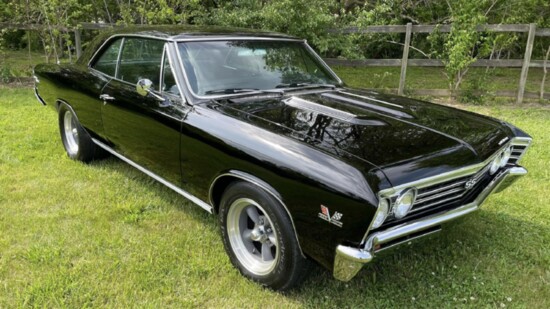While people apply slightly different definitions when classifying 'classic cars,' in general they're considered antique, vintage and collector vehicles when they're at least 10 to 25 years old. How to preserve and best maintain them becomes a key question. To address those answers, Greenwood City Lifestyle tapped into the expertise of Robin Barkdull, All-N-1 Detail and Reconditioning owner.
"If you own a classic car, you've no doubt made several substantial investments in it and want to keep it in pristine condition," says Robin. "It's very important to only hand-wash these cars. Don't take them through a machine wash. It increases the chances of causing damage."
He asserts Indianapolis has the most classic cars of any city in North America. "A large majority of my customers have some sort of classic, muscle or collector vehicle," he adds.
One industry distinction categorizes cars as: A vintage car is one manufactured between 1919-1930. An antique car was manufactured in 1975 or earlier (older than 45 years old). Classic cars were manufactured in the 1990s or earlier (at least 20 years old).
Robin suggests if owners are driving classic cars occasionally, it's best to have them washed every few weeks. He adds, "If driving them in cold weather, they should be washed promptly to keep road salt and other contaminants from ruining finishes. Hand-washing with a microfiber cloth is the ideal bath for classic cars to protect delicate components and ensure every spot is gotten."
He recommends using a rinseless wash product, such as Opti No Rinse (ONR). He says that's the safest way to clean classic cars because polymers in ONR create a greater barrier between dirt particulates and automotive finishes.
"If your vehicle's dirtier than a light dust from short drives, then use a recommended car wash soap that provides a rich foaming lather to trap dirt and grime. Then rinse to leave a clean surface behind. Avoid using dish soap, as it will breakdown and remove wax," Robin states.
What's the best car storage space? Robin says the ideal scenario is to store cars on a concrete floor in a dry, climate-controlled garage with an air-filtered HVAC system. "If that's not possible, choose a dry space. Avoid parking on dirt or grass because that allows moisture to collect on the vehicle's undercarriage, damaging it," he says.
Because classic cars are more likely to develop rust issues, Robin reminds it's very important to take additional steps drying after washing to reduce chances of rust developing.
Classic Car Maintenance Tips:
- Use correct gas.
- Select right oil.
- Examine brakes.
- Check fluid levels.
- Pay attention to unusual odors.
- Inspect tires, especially before intending to drive car very far.
- Monitor the battery.
- Stay ahead of rust and corrosion.
If considering a classic car purchase, State Farm Insurance offers this inspection checklist:
- Clear title: Check if car is registered to seller, or not registered at all. Fees/penalties add up if new owners need to research and apply for new title.
- VIN: Make sure Vehicle Identification Number (VIN) on title matches official VIN tag on car. If they don't match, it's possible the vehicle may've been in a serious accident, the title is counterfeit or the vehicle was stolen.
- Interior: Original is best. Check if seats, upholstery, badges, radio, dashboard and emblems are damaged, or not factory original. Finding/replacing these elements can become costly.
- Exterior: Try to examine the car in natural daylight. Look for paint condition, obvious dents and misaligned/mismatched panels.
- Rust damage: A little can be expected, but if complete sections of floorboards or body panels are rusted or show signs of repair/replacement, be cautious.
- Test drive: If car is running, safe and legal to drive, take it for a spin. Listen for noises, squeaks and clunks. If it feels loose going around corners or over bumps, there may be costly suspension problems.
Robin's recommendations for anyone thinking about investing in a classic car is to first decide on the auto's purpose. Then, attend some classic car shows and get involved with a classic car club. He adds, "Make a list of questions for the seller. After a test drive, get a professional inspection. Then find a mechanic and detailer for ongoing maintenance. Last, explore insurance options."
"Some need therapy, exercise, shopping or meditation; others just need classic cars!"
